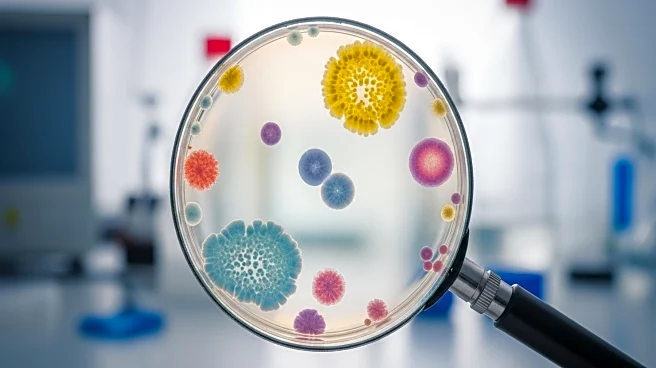What is the story about?
What's Happening?
Researchers at Rockefeller University have developed a novel method to discover new antibiotics by sequencing bacterial DNA from soil samples. This approach bypasses the need to culture bacteria in the lab, allowing scientists to access a vast reservoir of untapped genetic material. By extracting large DNA fragments directly from soil, the team has pieced together genomes of previously hidden microbes, leading to the identification of two new antibiotic leads. This breakthrough, published in Nature Biotechnology, represents a significant advancement in the search for bioactive molecules that could combat antibiotic resistance.
Why It's Important?
The discovery of new antibiotics is crucial in the fight against antibiotic-resistant bacteria, a growing public health concern. The innovative method developed by Rockefeller University researchers opens up new possibilities for drug discovery by tapping into the genetic diversity of uncultured bacteria. This could lead to the development of novel therapeutics that are less prone to resistance, addressing a critical gap in the current antibiotic pipeline. The ability to explore the microbial world at this scale also has broader implications for understanding microbial ecosystems and their impact on the environment, agriculture, and human health.
Beyond the Headlines
The implications of this research extend beyond antibiotic discovery. By unlocking the genetic potential of soil microbes, scientists can gain insights into the roles these organisms play in ecosystems, potentially leading to advances in fields such as agriculture and climate science. The method's scalability and adaptability to other metagenomic spaces suggest that it could be applied to a wide range of environmental samples, further expanding our understanding of microbial diversity and its applications. This research highlights the importance of innovative approaches in addressing global challenges and the potential for interdisciplinary collaboration in scientific discovery.















